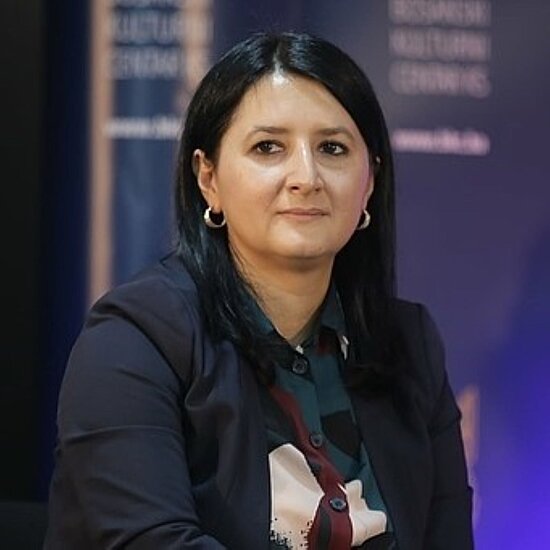Assist. Prof. Amina Isanović Hadžiomerović

CG6: National/regional adult education and lifelong learning policies
Co-Moderator: Prof. Paula Guimarães & Prof. Natália Alves
The analysis of national/regional adult education and lifelong learning policies can follow the models proposed by Lima and Guimarães (2011): democratic emancipatory model; modernisation and state control model; and human resources model. This analytical proposal includes several criteria allowing the identification of political orientation and priorities, organisational dimensions and conceptual elements and the interpretation of main subjects underlying adult education policies in recent decades. These models seek to embrace a wide range of adult education policies adopted in different countries and regions, many of these reflecting the impact of the European Union or other international governmental organisations. Built on a continuum, these analytical models are not exclusive but can show hybridisation, as a national or regional policy can present characteristics of different models. Some countries or regions favour policies based on upskilling of the workmanship through learning programmes, its adaptation to the labour market needs and the raise of productivity and economic competitiveness; others are more directed at developing education and training systems, favouring formal education and training, school certification and professional qualification of adults that are part of more formalised and ruled labour markets; others still are oriented towards democratic and emancipatory principles, fostering participation and equality of opportunities within liberal adult education and popular education programmes.
The expected learning outcomes of this comparative group is to gain insights on:
- different as well as similar national/regional adult education and lifelong learning policies in several countries or regions, and
- understanding such similarities and differences according to national/regional historical and contextual aspects.
- Isanović Hadžiomerović, A., Isanović H., Çapkın D.F. (2024). Challenging transformative learning and circular thinking in an architecture study program. In Žiljak, T., Ristord, P., Alfrijević, N., Pavičić, J. (eds). Lifelong Learning for Green Skills and Sustainable Development in the European Context. Palgrave & Springer
- Isanović Hadžiomerović, A. (2024). Questioning assumptions for developing andragogy study program in Bosnia and Herzegovina, Studies in Adult Education and Learning, Vol. 23, No. 1 (2024)
- Isanović Hadžiomerović, A. (2023). Beyond quantitative measures: Researching identity formation and development through qualitative paradigm, Context 10:1 (2023), 53-74
- Mavrak, M., Badurina, M., Isanović Hadžiomerović, A. (2024). Andragoški priručnik za zdravstvene stručnjake u zajednici [Andragogical Handbook for Medical Professionals in the Community]. Sarajevo: fami Foundation & Federal Ministry of Health. Available from: https://www.fondacijafami.org/Publikacije/PUB_Prirucnik_AP_SOZNJZ_BOS_/mobile/html5forpc.html
- Isanović Hadžiomerović, A., Pfanzelt, A, Pfanzelt H. (2022). Qualitative Study on Adult Education in Bosnia and Herzegovina. Bonn-Sarajevo: DIE & DVV International. https://www.dvvinternational.ba/fileadmin/files/bosnia-and-herzegovina/Documents/Publications/Studija_BSC_bosnia_- _English.pdf
- Isanović Hadžiomerović, A. (2018). In Search of Identity: Adult Education in Bosnia and Herzegovina between the Socialist Legacy and Neoliberal Tendencies, Studies in Adult Education and Lifelong Learning, Vol. 24 No 4, pp. 37-52
Her interests are in Adult Education Policy, Lifelong Career Learning, Evaluation in Higher Education
Assist. Prof. Amina Isanović Hadžiomerović teaches Adult Education, Career Guidance, Evaluation in Education and Research Methods at the Faculty of Philosophy, University of Sarajevo (Bosnia and Herzegovina). She is also head of the Lifelong Learning and Continuing Education Center at the same Faculty.


